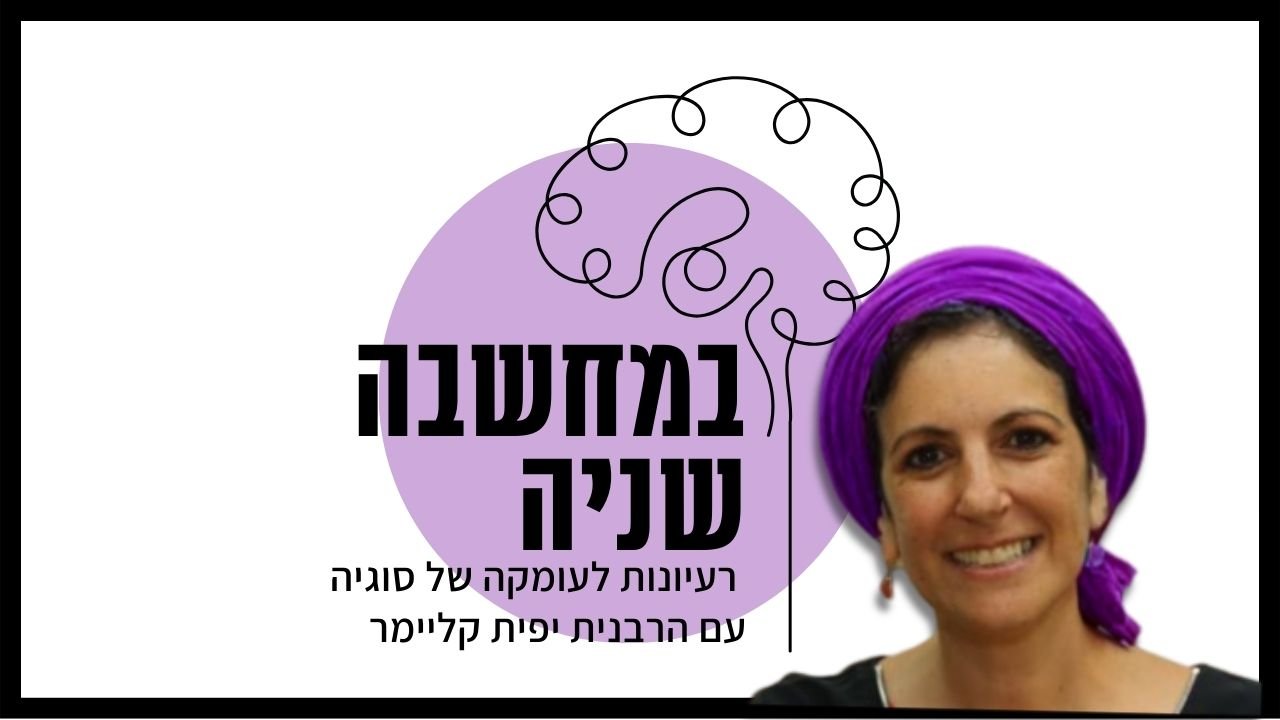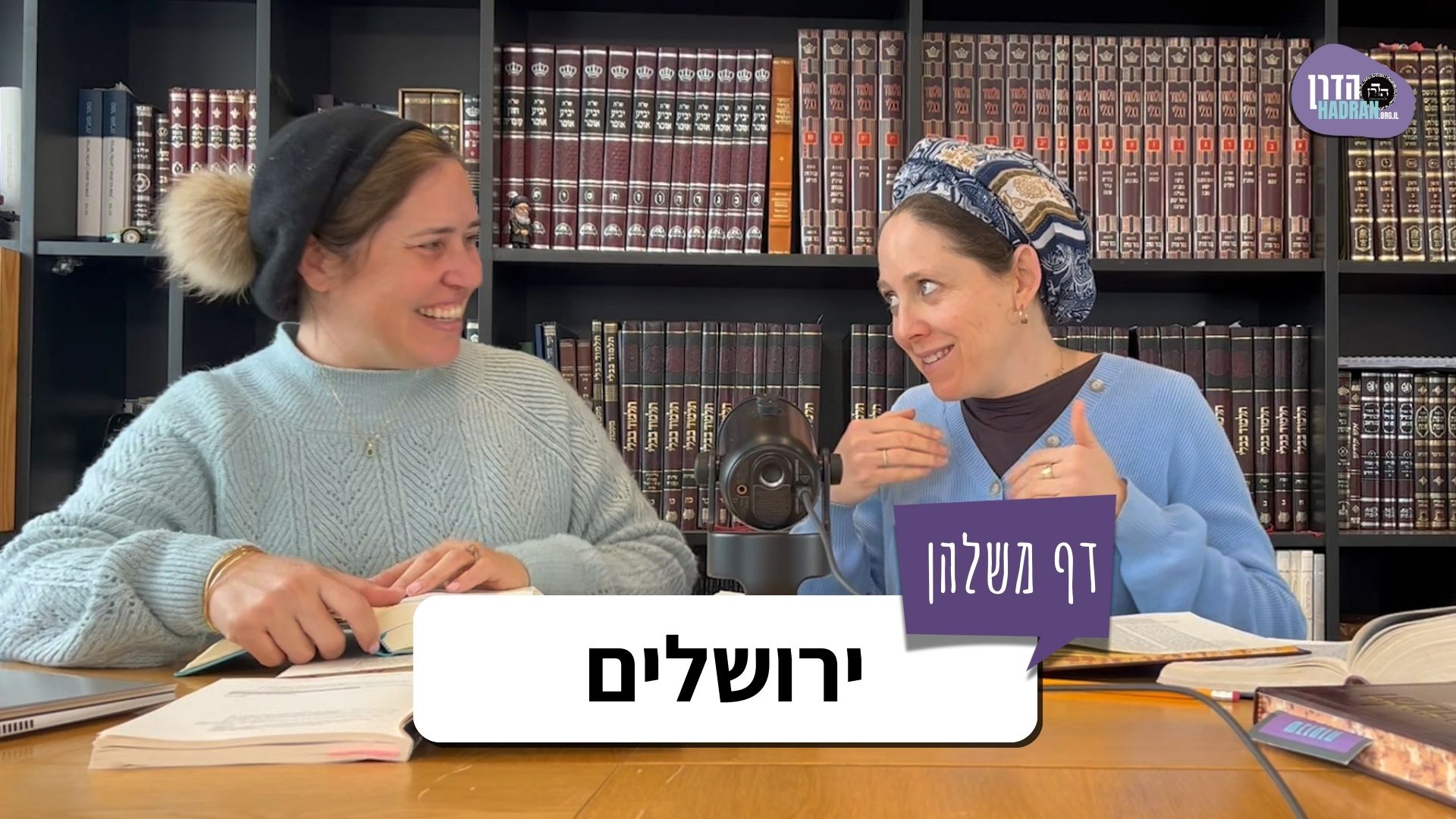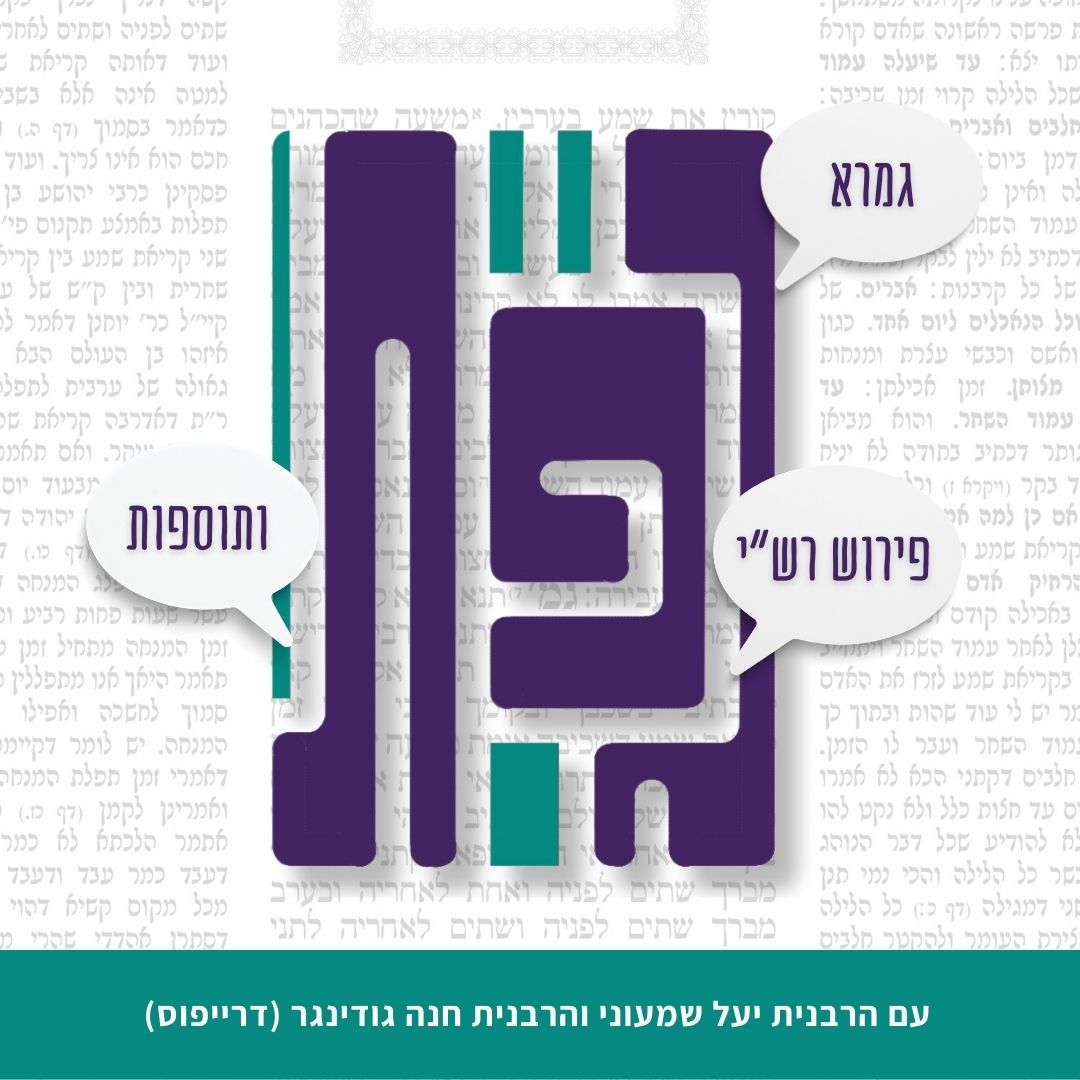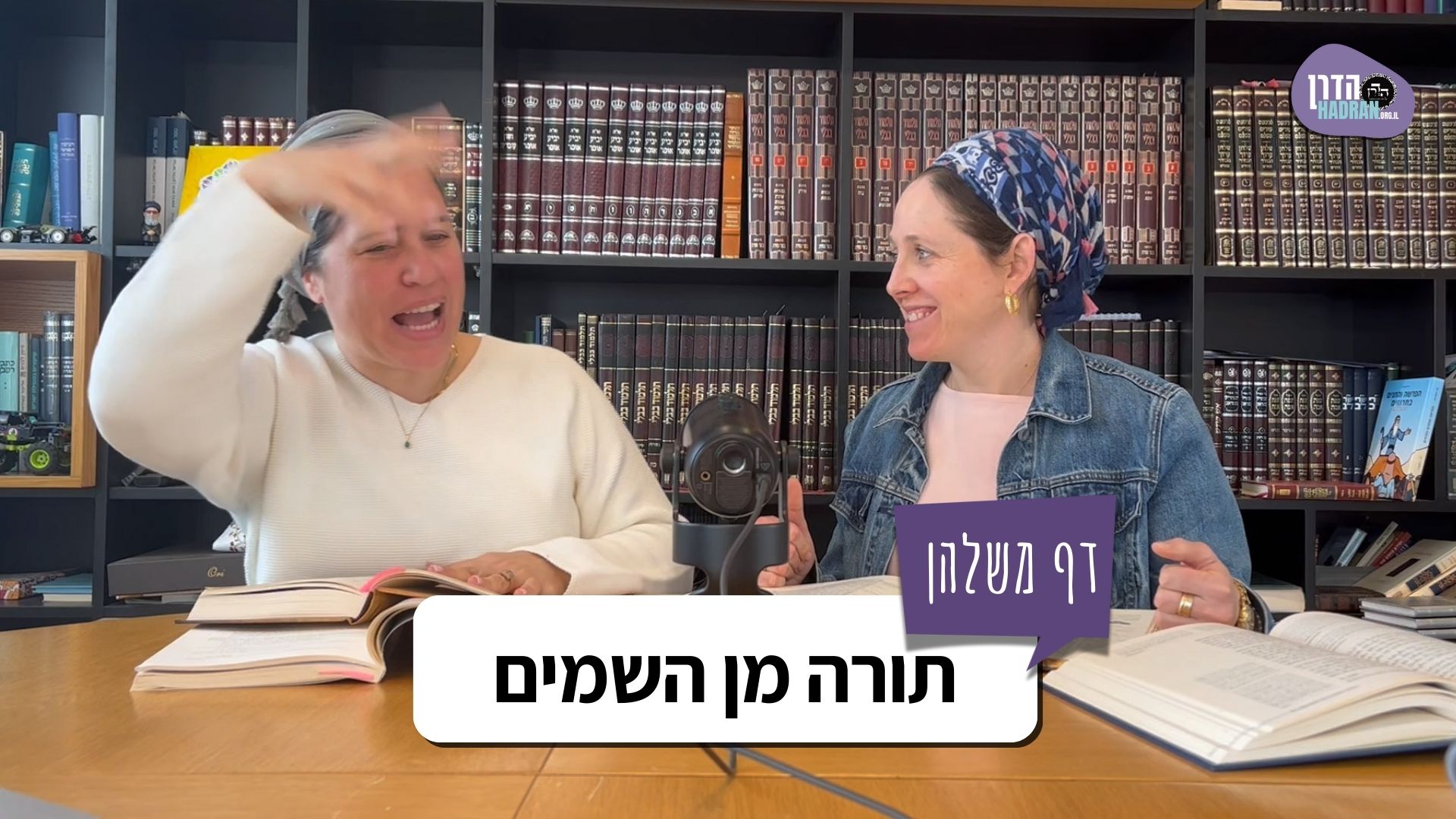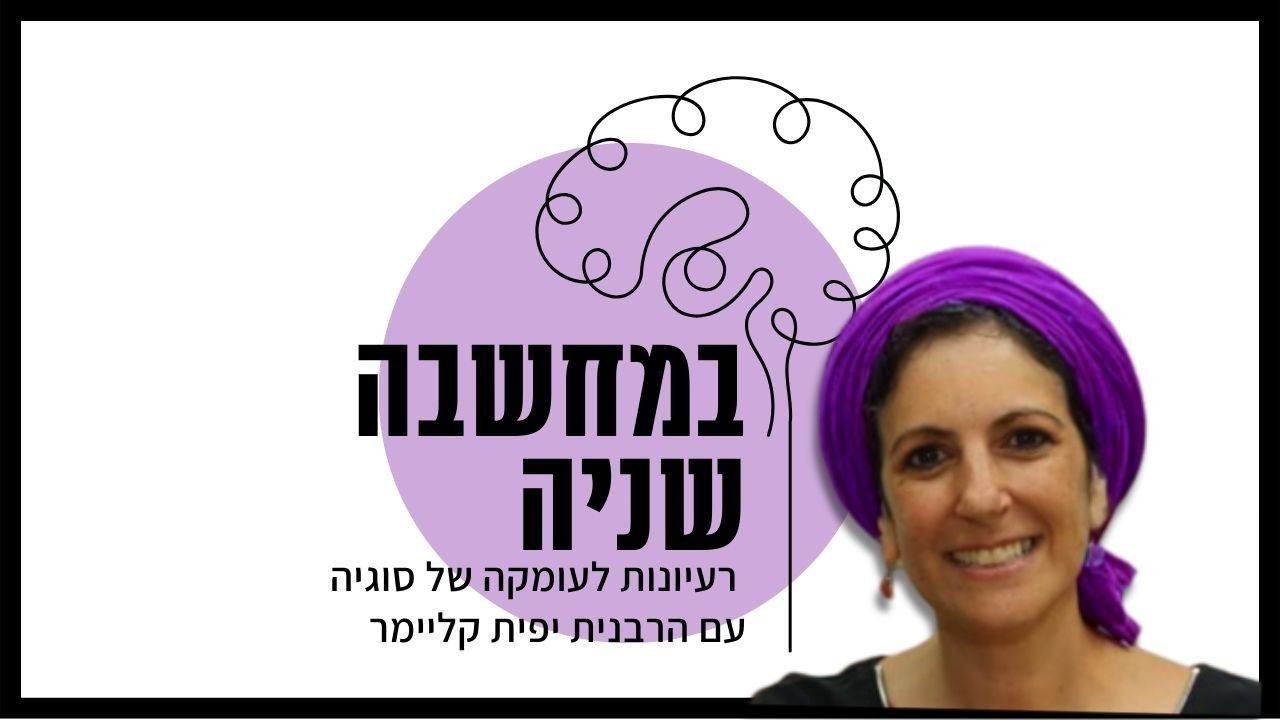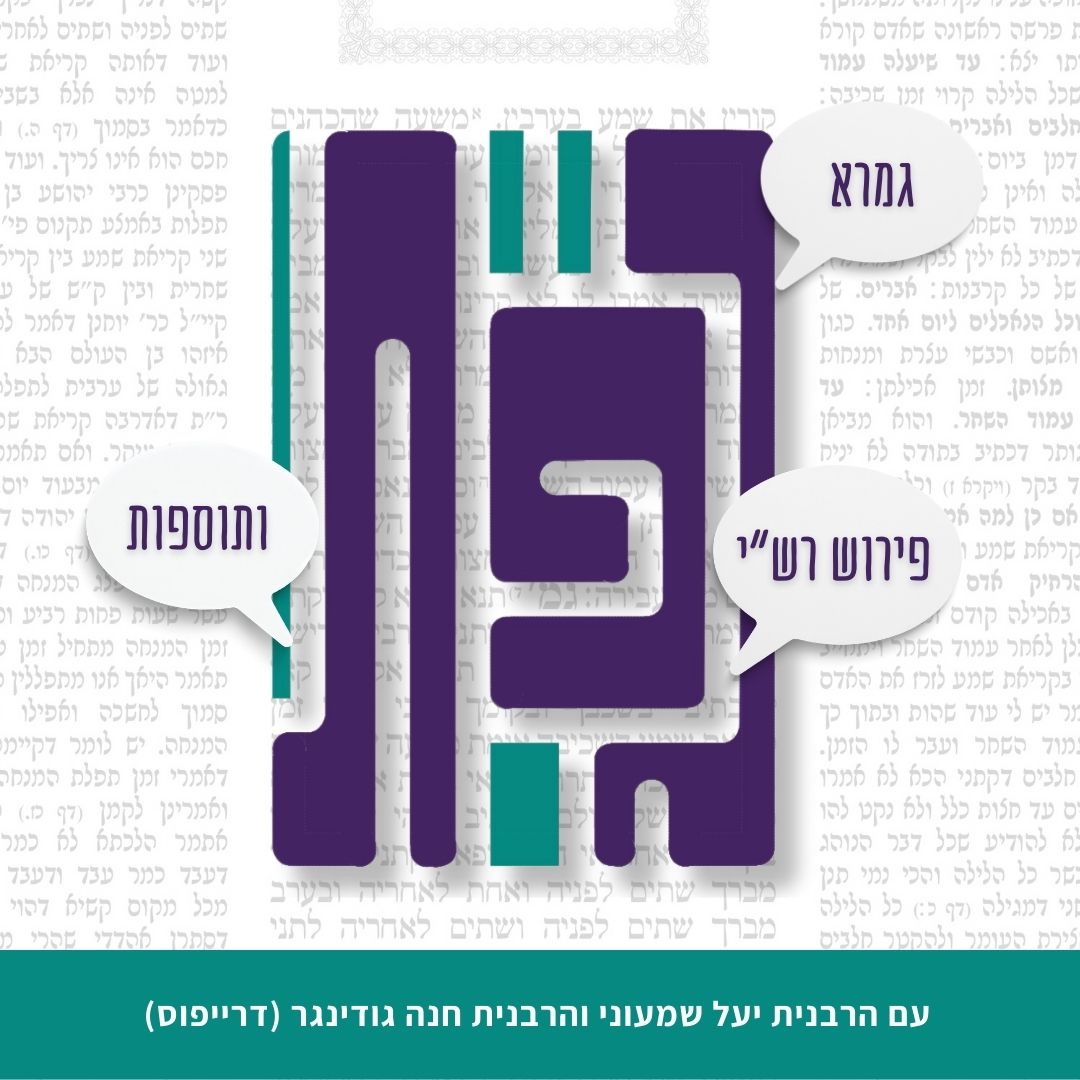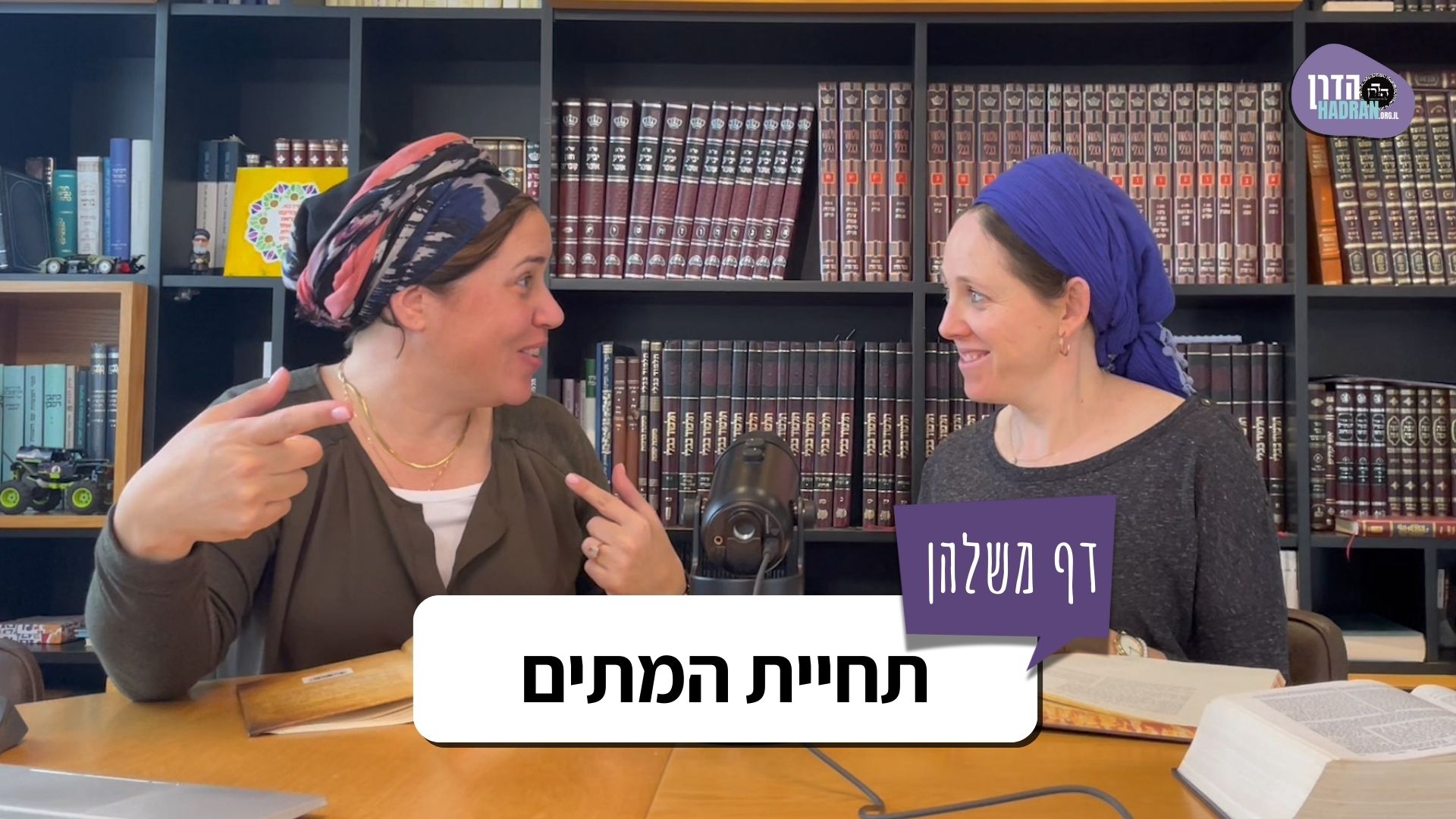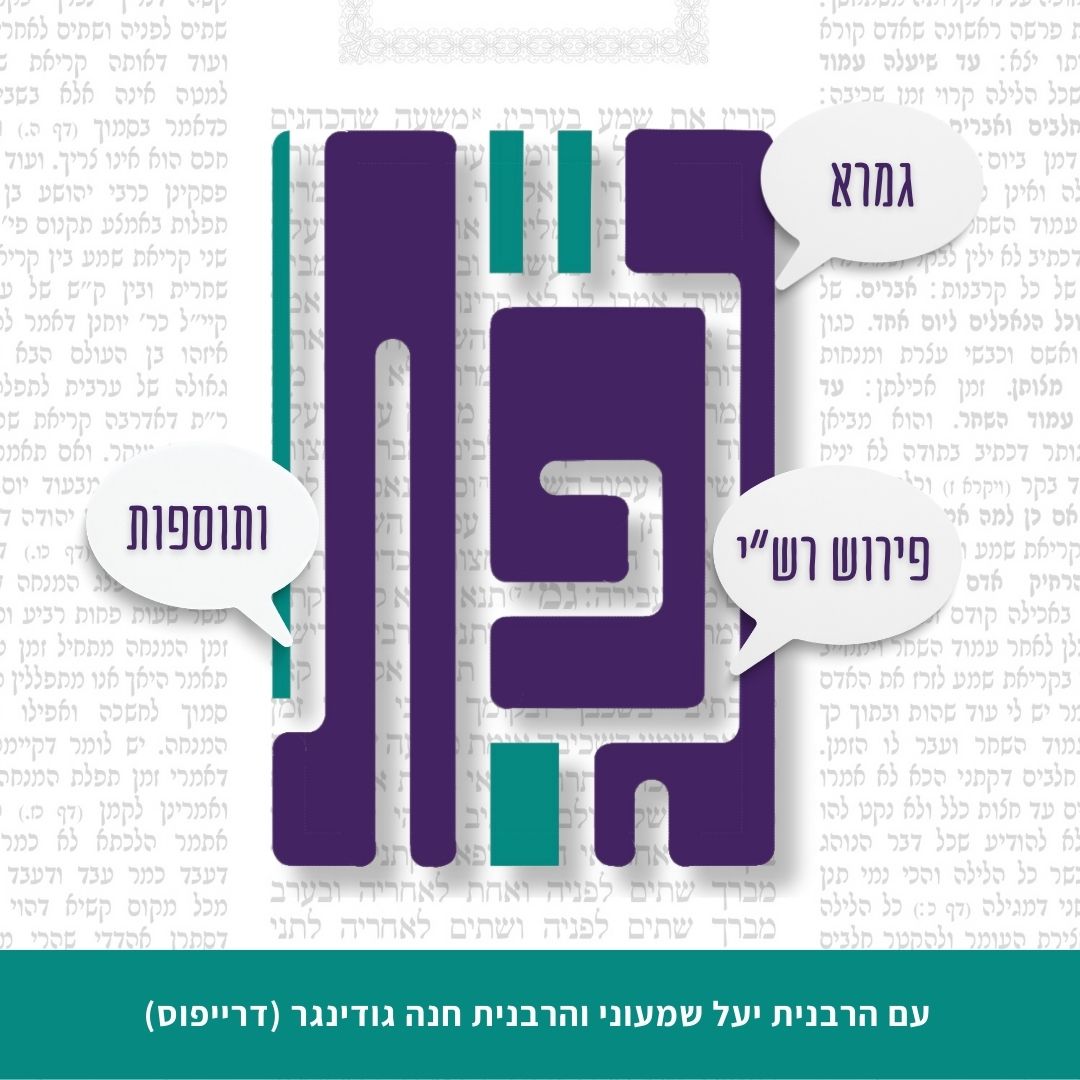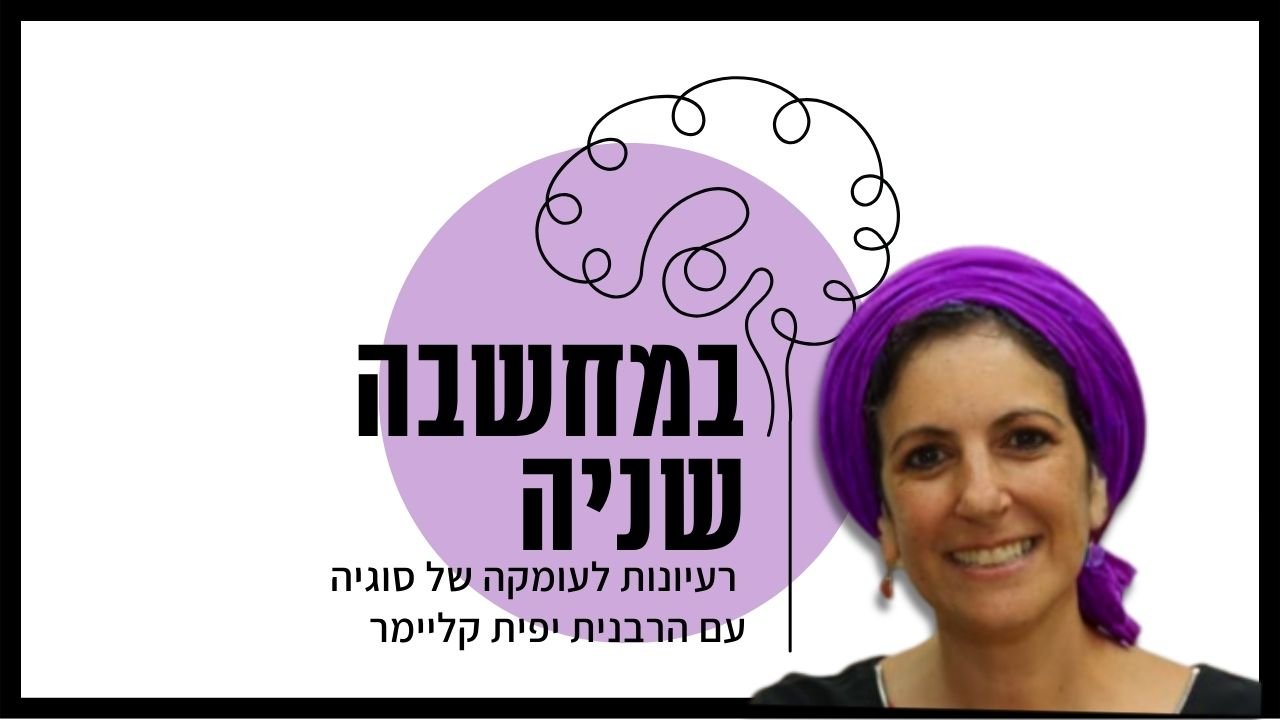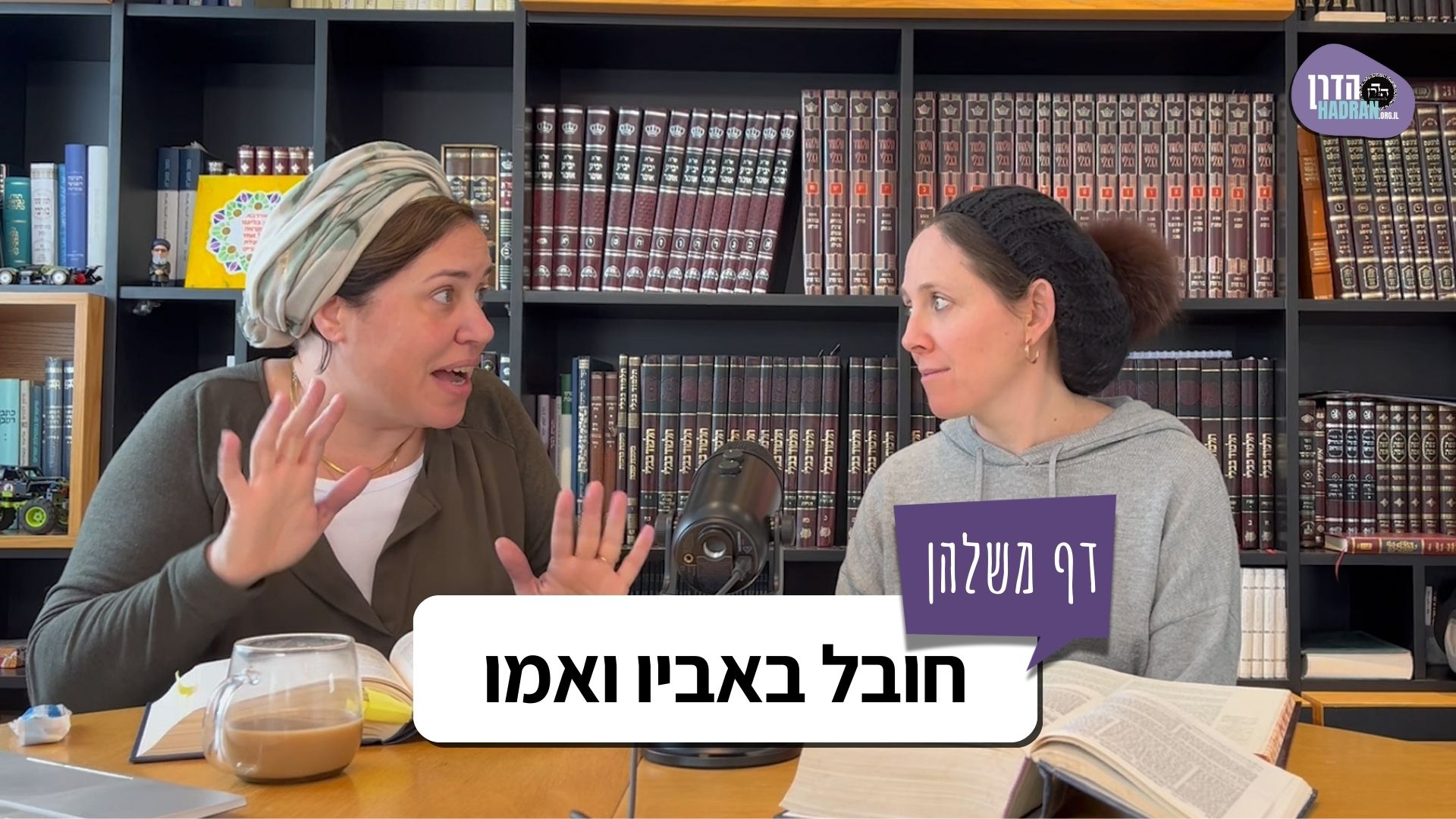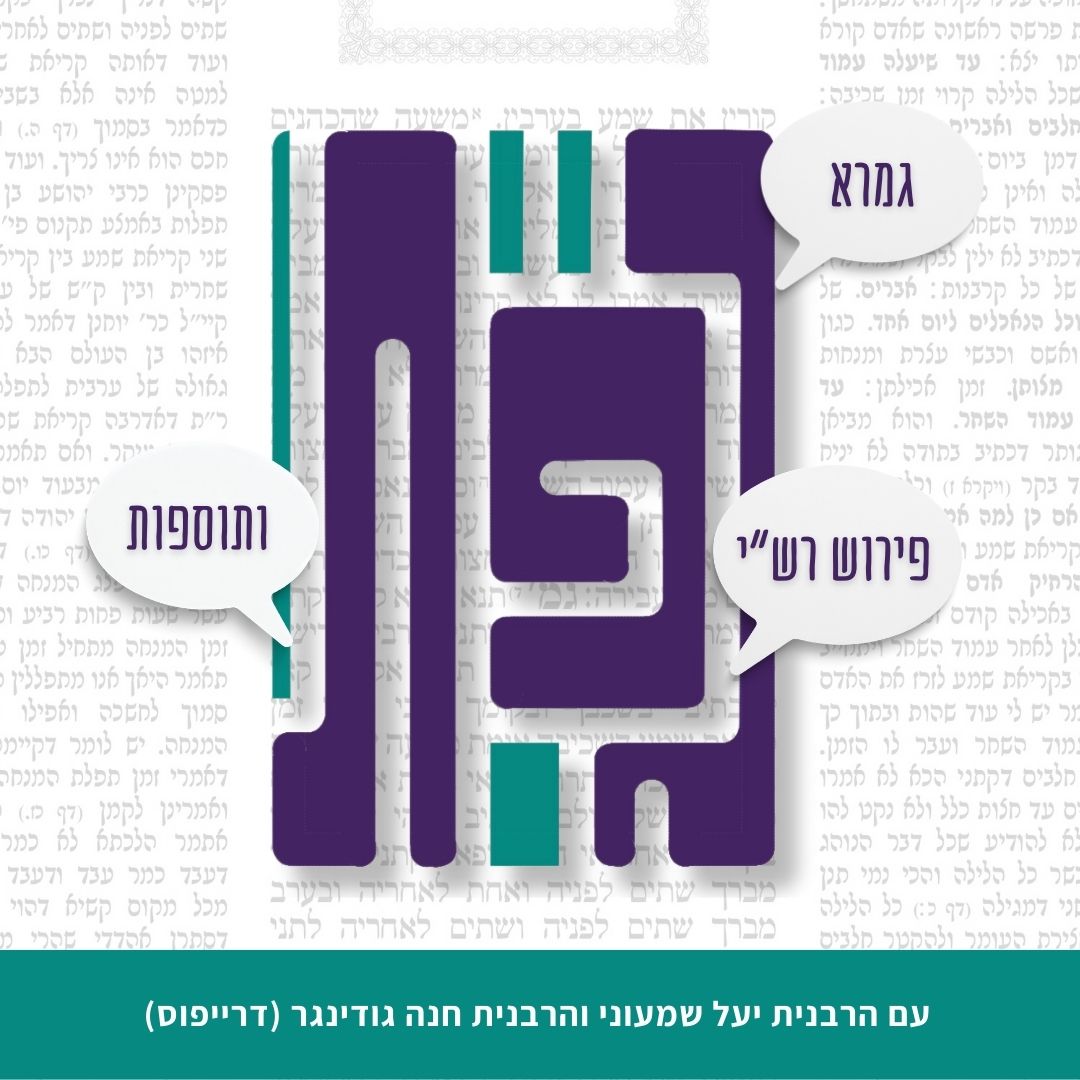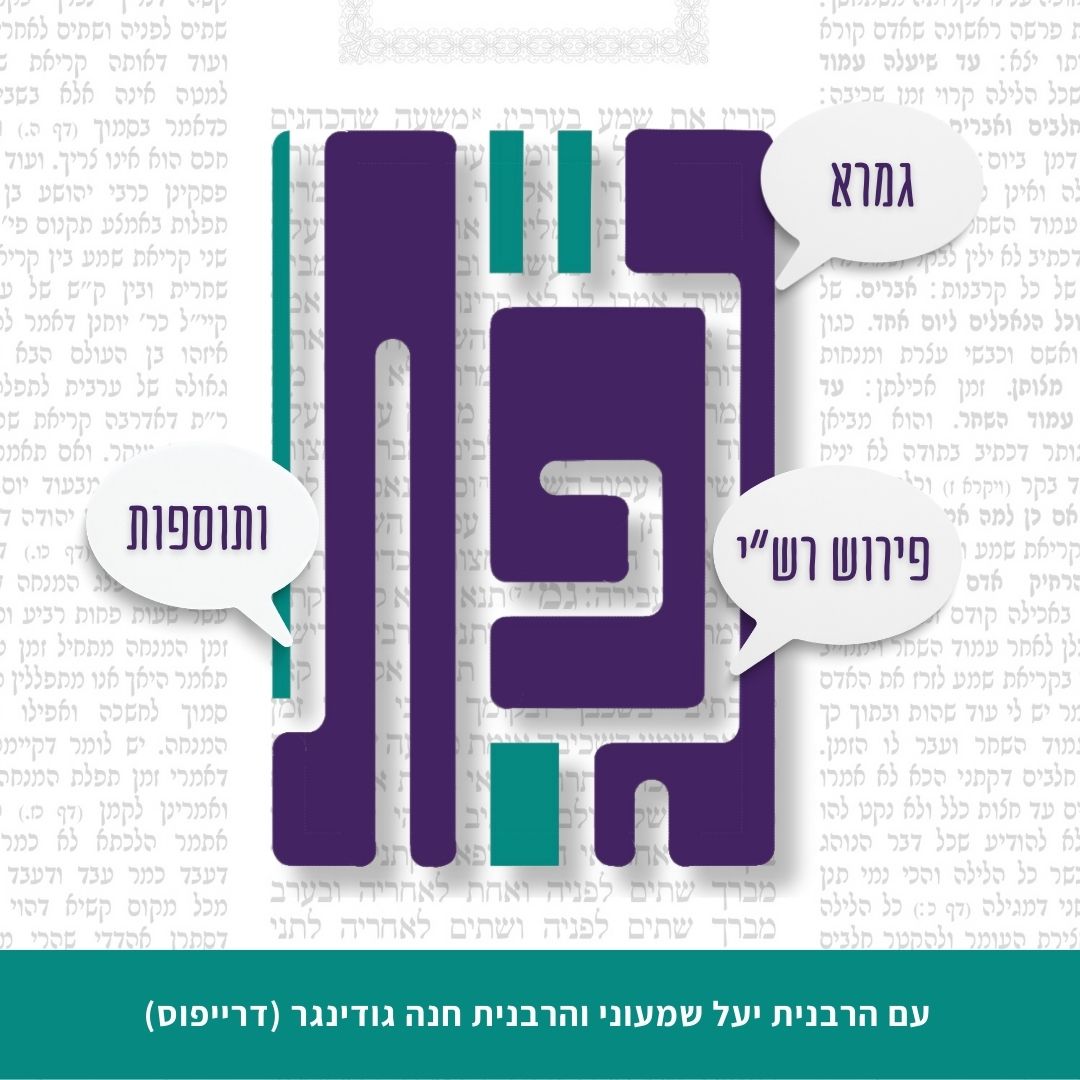סנהדרין ק
לָא שְׁרוֹ לַן עוֹרְבָא, וְלָא אֲסַרוּ לַן יוֹנָה.
have they permitted a raven for us nor have they prohibited a dove for us. They merely tell us matters stated explicitly in the Torah.
רָבָא, כִּי הֲווֹ מַיְיתִי טְרֵיפְתָּא דְּבֵי בִנְיָמִין קַמֵּיהּ, כִּי הֲוָה חָזֵי בַּהּ טַעְמָא לְהֶיתֵּירָא, אֲמַר לְהוּ: תֶּחֱזוֹ דְּקָא שָׁרֵינָא לְכוּ עוֹרְבָא. כִּי הֲוָה חָזֵי לַהּ טַעְמָא לְאִיסּוּרָא, אֲמַר לְהוּ: תֶּחֱזוֹ דְּקָא אָסַרְנָא לְכוּ יוֹנָה.
The Gemara relates with regard to Rava: When they would bring a possible tereifa from the house of Binyamin before him, when he would see in it a reason to permit its consumption, Rava would say to them: See that I am permitting a raven for you, as this is an animal that appeared forbidden. When he would see in it a reason to prohibit its consumption, Rava would say to them: See that I am prohibiting a dove for you.
רַב פָּפָּא אָמַר: כְּגוֹן דְּאָמַר ״הָנֵי רַבָּנַן״. רַב פָּפָּא אִישְׁתְּלִי וְאָמַר: ״כְּגוֹן הָנֵי רַבָּנַן״, וְאִיתִּיב בְּתַעֲנִיתָא.
Rav Pappa says: The epikoros mentioned in the mishna is referring to one who conducts himself like one who says: Those Sages, with contemptuous overtones. The Gemara relates that Rav Pappa himself forgot in one instance and said: Like those Sages, and he observed a fast to achieve atonement for expressing himself in that manner.
לֵוִי בַּר שְׁמוּאֵל וְרַב הוּנָא בַּר חִיָּיא הֲווֹ קָא מְתַקְּנִי מִטְפְּחוֹת סִפְרֵי דְּבֵי רַב יְהוּדָה. כִּי מָטוּ מְגִילַּת אֶסְתֵּר אָמְרִי: הָא [מְגִילַּת אֶסְתֵּר] לָא בָּעֵי מִטְפַּחַת. אֲמַר לְהוּ: כִּי הַאי גַוְונָא נָמֵי מִיחְזֵי כִּי אַפְקֵירוּתָא.
The Gemara relates: Levi bar Shmuel and Rav Huna bar Ḥiyya were mending mantles for the sacred scrolls of the school of Rav Yehuda. When they reached the scroll of Esther they said: This scroll of Esther does not require a mantle, as it is not as significant as the other sacred scrolls. Rav Yehuda said to them: A statement of that sort also seems to express irreverence like the irreverence typical of an epikoros, as you should not have referred to the scroll of Esther as: This scroll.
רַב נַחְמָן אָמַר: זֶה הַקּוֹרֵא רַבּוֹ בִּשְׁמוֹ, דְּאָמַר רַבִּי יוֹחָנָן: מִפְּנֵי מָה נֶעֱנַשׁ גֵּיחֲזִי? מִפְּנֵי שֶׁקָּרָא לְרַבּוֹ בִּשְׁמוֹ, שֶׁנֶּאֱמַר: ״וַיֹּאמֶר גֵּחֲזִי אֲדֹנִי הַמֶּלֶךְ זֹאת הָאִשָּׁה וְזֶה בְּנָהּ אֲשֶׁר הֶחֱיָה אֱלִישָׁע״.
Rav Naḥman says: An epikoros is one who calls his teacher by his name and does not call him Rabbi, as Rabbi Yoḥanan said: For what reason was Gehazi punished? It is due to the fact that he called his teacher by his name, as it is stated: “And Gehazi said: My lord the king, this is the woman, and this is her son, whom Elisha revived” (II Kings 8:5).
יָתֵיב רַבִּי יִרְמְיָה קַמֵּיהּ דְּרַבִּי זֵירָא, וְיָתֵיב וְקָאָמַר: עָתִיד הַקָּדוֹשׁ בָּרוּךְ הוּא לְהוֹצִיא נַחַל מִבֵּית קׇדְשֵׁי הַקֳּדָשִׁים, וְעָלָיו כׇּל מִינֵי מְגָדִים, שֶׁנֶּאֱמַר: ״וְעַל הַנַּחַל יַעֲלֶה עַל שְׂפָתוֹ מִזֶּה וּמִזֶּה כׇּל עֵץ מַאֲכָל לֹא יִבּוֹל עָלֵהוּ וְלֹא יִתֹּם פִּרְיוֹ לׇחֳדָשָׁיו יְבַכֵּר כִּי מֵימָיו מִן הַמִּקְדָּשׁ [הֵמָּה] יוֹצְאִים וְהָיָה פִרְיוֹ לְמַאֲכָל וְעָלֵהוּ לִתְרוּפָה״. אֲמַר לֵיהּ הָהוּא סָבָא: ״יִישַׁר״, וְכֵן אָמַר רַבִּי יוֹחָנָן: ״יִישַׁר״. אֲמַר לֵיהּ רַבִּי יִרְמְיָה לְרַבִּי זֵירָא: כִּי הַאי גַּוְנָא מִיחְזֵי אַפְקֵרוּתָא?
§ The Gemara relates: Rabbi Yirmeya sat before Rabbi Zeira, and sat and said: The Holy One, Blessed be He, will cause a river to emerge from the Holy of Holies, and alongside it all sorts of delicacies will grow, as it is stated: “And the river upon its bank, on this side and on that side shall grow every tree for food, whose leaf shall not wither, neither shall its fruit fall; it shall bring forth new fruit every month, because their waters emerged from the Sanctuary; and its fruit shall be for food and its leaf for medicine” (Ezekiel 47:12). A certain elder said to Rabbi Yirmeya: Well done, and so Rabbi Yoḥanan said: Well done. Rabbi Yirmeya said to Rabbi Zeira: Does a statement of that sort, when one who is not a Torah scholar says to a Sage that his statement is correct, seem like the irreverence typical of an epikoros?
אֲמַר לֵיהּ: הָא [הַאי] סַיּוֹעֵי קָא מְסַיַּיע לֵיהּ [לָךְ]! אֶלָּא אִי שְׁמִיעַ לָךְ הָא, שְׁמִיעַ לָךְ: כִּי הָא דְּיָתֵיב רַבִּי יוֹחָנָן וְקָא דָרֵישׁ: עָתִיד הַקָּדוֹשׁ בָּרוּךְ הוּא לְהָבִיא אֲבָנִים טוֹבוֹת וּמַרְגָּלִיּוֹת שֶׁהֵן שְׁלֹשִׁים עַל שְׁלֹשִׁים אַמּוֹת, וְחוֹקֵק בָּהֶם עֶשֶׂר בְּרוּם עֶשְׂרִים, וּמַעֲמִידָן בְּשַׁעֲרֵי יְרוּשָׁלַיִם, שֶׁנֶּאֱמַר ״וְשַׂמְתִּי כַּדְכֹד שִׁמְשֹׁתַיִךְ וּשְׁעָרַיִךְ לְאַבְנֵי אֶקְדָּח וְגוֹ׳״. לִגְלֵג עָלָיו אוֹתוֹ תַּלְמִיד, אָמַר: הַשְׁתָּא כְּבֵיעֲתָא דְצִילְצְלָא לָא מַשְׁכְּחִינַן, כּוּלֵּי הַאי מַשְׁכְּחִינַן?
Rabbi Zeira said to him: But isn’t he supporting your statement? He meant no disrespect. Rather, if you heard that at times supporting the statement of a Sage is irreverent, this is what you heard: It is like that case in which Rabbi Yoḥanan sat and taught: The Holy One, Blessed be He, is destined to bring precious stones and jewels that are thirty by thirty cubits, and He will bore in them an opening ten cubits wide by twenty cubits in height and place them to serve as the gates of Jerusalem, as it is stated: “And I will make your pinnacles of rubies and your gates of carbuncles” (Isaiah 54:12). A certain student mocked him and said: Now, at present, we do not find precious stones comparable in size to the egg of a palm dove. Will we find stones as large as those that you described?
לְיָמִים הִפְלִיגָה סְפִינָתוֹ בַּיָּם. חֲזִינְהוּ לְמַלְאֲכֵי הַשָּׁרֵת דְּקָא מְנַסְּרִי אֲבָנִים טוֹבוֹת וּמַרְגָּלִיּוֹת. אֲמַר לְהוּ: הָנֵי לְמַאן? אָמְרִי: עָתִיד הַקָּדוֹשׁ בָּרוּךְ הוּא לְהַעֲמִידָן בְּשַׁעֲרֵי יְרוּשָׁלַיִם. כִּי הֲדַר אַשְׁכְּחֵיהּ לְרַבִּי יוֹחָנָן דְּיָתֵיב וְקָא דָרֵישׁ. אֲמַר לֵיהּ: רַבִּי, דְּרוֹשׁ וּלְךָ נָאֶה לִדְרוֹשׁ. כְּשֵׁם שֶׁאָמַרְתָּ כָּךְ רָאִיתִי. אָמַר לוֹ: רֵיקָה! אִם לֹא רָאִיתָ לֹא הֶאֱמַנְתָּ? מְלַגְלֵג עַל דִּבְרֵי חֲכָמִים אַתָּה! יְהַב בֵּיהּ עֵינֵיהּ וַעֲשָׂאוֹ גַּל שֶׁל עֲצָמוֹת.
Sometime later that student’s ship set sail at sea. He saw the ministering angels cutting precious stones that size. He said to the angels: For whom are these stones? The angels said to him: The Holy One, Blessed be He, is destined to place them at the gates of Jerusalem. When the student returned, he found Rabbi Yoḥanan, who was sitting and teaching. The student said to him: My teacher, teach, and it is fitting for you to teach. Just as you said with regard to the precious stones, so I saw. Rabbi Yoḥanan said to him: Good-for-nothing, if you did not see it, you would not believe it? You are one who mocks the statements of the Sages. Rabbi Yoḥanan directed his eyes toward him in anger and rendered him a pile of bones.
מֵיתִיבִי: ״וָאוֹלֵךְ אֶתְכֶם קוֹמְמִיּוּת״ – רַבִּי מֵאִיר אוֹמֵר: מָאתַיִם אַמָּה, כִּשְׁתֵּי קוֹמוֹת שֶׁל אָדָם הָרִאשׁוֹן. רַבִּי יְהוּדָה אוֹמֵר: מֵאָה אַמָּה, כְּנֶגֶד הֵיכָל וּכְתָלָיו, שֶׁנֶּאֱמַר: ״אֲשֶׁר בָּנֵינוּ כִּנְטִעִים מְגֻדָּלִים בִּנְעוּרֵיהֶם בְּנוֹתֵינוּ כְזָוִיּוֹת מְחֻטָּבוֹת תַּבְנִית הֵיכָל וְגוֹ׳״.
The Gemara raises an objection from a baraita to the statement of Rabbi Yoḥanan that the gates will be twenty cubits high. The Sages engaged in a dispute concerning the interpretation of the verse: “And I made you go upright [komemiyyut]” (Leviticus 26:13). Rabbi Meir says that in the end of days people will be two hundred cubits tall, the equivalent of twice the height of Adam the first man, who was one hundred cubits tall. Rabbi Yehuda says: People will be one hundred cubits tall, corresponding to the height of the Sanctuary and its walls, as it is stated: “For our sons are as plants grown up in their youth; our daughters as cornerstones, carved in the fashion of a palace” (Psalms 144:12), indicating that the sons and daughters will be one hundred cubits tall, the height of the Sanctuary. If the people are that tall, how will they enter gates twenty cubits high?
כִּי קָאָמַר רַבִּי יוֹחָנָן, לְכַוֵּי דְּבֵי זִיקָא.
The Gemara answers: When Rabbi Yoḥanan says that the openings would be twenty cubits high he is referring to the windows through which wind enters. The gates through which people enter will extend considerably higher.
מַאי ״וְעָלֵהוּ לִתְרוּפָה״? רַבִּי יִצְחָק בַּר אֲבוּדִימִי וְרַב חִסְדָּא: חַד אָמַר, לְהַתִּיר פֶּה שֶׁל מַעְלָה; וְחַד אָמַר, לְהַתִּיר פֶּה שֶׁל מַטָּה.
§ Apropos the river that will emerge from the Holy of Holies, the Gemara asks: What is the meaning of the phrase: And its leaf for medicine [literufa]? Rabbi Yitzḥak bar Avudimi and Rav Ḥisda disagree. One says: This is an abbreviation for the phrase: To unlock the mouth [lehattir peh] that is above, i.e., the leaf heals the mute. And one says: That is the abbreviation, but it means to unlock the mouth that is below, a euphemism for healing the womb of a barren woman.
אִיתְּמַר נָמֵי: חִזְקִיָּה אָמַר לְהַתִּיר פֶּה אִילְּמִין, בַּר קַפָּרָא אָמַר לְהַתִּיר פֶּה עֲקָרוֹת, רַבִּי יוֹחָנָן אָמַר לִתְרוּפָה מַמָּשׁ. מַאי לִתְרוּפָה? רַבִּי שְׁמוּאֵל בַּר נַחְמָנִי אָמַר: לְתוֹאַר פָּנִים שֶׁל בַּעֲלֵי הַפֶּה.
It was also stated that other Sages engaged in a dispute concerning this matter. Ḥizkiyya says that the reference is: To unlock the mouth of mutes, and bar Kappara says that the reference is: To unlock the mouth of barren women. Rabbi Yoḥanan says: The reference is to actual medicine. The Gemara asks: According to that opinion, what is the meaning of the term: For medicine [literufa]? Rabbi Shmuel bar Naḥmani says: It is an abbreviation meaning to beautify the countenance [letoar panim] of the keepers of the mouth [peh], i.e., the Sages, who labored with their mouths to study Torah in this world.
דָּרֵשׁ רַבִּי יְהוּדָה בְּרַבִּי סִימוֹן: כָּל הַמַּשְׁחִיר פָּנָיו עַל דִּבְרֵי תּוֹרָה בָּעוֹלָם הַזֶּה, הַקָּדוֹשׁ בָּרוּךְ הוּא מַבְהִיק זִיוָיו לָעוֹלָם הַבָּא, שֶׁנֶּאֱמַר: ״מַרְאֵהוּ כַּלְּבָנוֹן בָּחוּר כָּאֲרָזִים״.
Rabbi Yehuda, son of Rabbi Simon, taught: For anyone who blackens his face while toiling over matters of Torah in this world, the Holy One, Blessed be He, shines his brightness in the World-to-Come, as it is stated: “His locks are curly black as a raven” (Song of Songs 5:11), and thereafter it is written: “His countenance is like Lebanon, excellent as the cedars” (Song of Songs 5:15), followed by: “His palate is like sweets” (Song of Songs 5:16). One who engages in sweets, i.e., Torah study, in this world, until he is blackened, black as a raven, is privileged to shining brightness in the World-to-Come.
אָמַר רַבִּי תַּנְחוּם בְּרַבִּי חֲנִילַאי: כׇּל הַמַּרְעִיב עַצְמוֹ עַל דִּבְרֵי תוֹרָה בָּעוֹלָם הַזֶּה, הַקָּדוֹשׁ בָּרוּךְ הוּא מַשְׂבִּיעוֹ לָעוֹלָם הַבָּא, שֶׁנֶּאֱמַר: ״יִרְוְיֻן מִדֶּשֶׁן בֵּיתֶךָ וְנַחַל עֲדָנֶיךָ תַשְׁקֵם״.
Rabbi Tanḥum, son of Rabbi Ḥanilai, says: With regard to anyone who starves himself over matters of Torah in this world, the Holy One, Blessed be He, satisfies him in the World-to-Come, as it is stated: “Your judgments are like the great deep” (Psalms 36:7), indicating that God is exacting with the righteous and does not reward them in this world, and it is stated thereafter: “They are abundantly satisfied with the plenty of Your house, and You feed them drink of the river of Your pleasures” (Psalms 36:9).
כִּי אֲתָא רַב דִּימִי אָמַר: עָתִיד הַקָּדוֹשׁ בָּרוּךְ הוּא לִיתֵּן לְכׇל צַדִּיק וְצַדִּיק מְלֹא עוֹמְסוֹ, שֶׁנֶּאֱמַר: ״בָּרוּךְ ה׳ יוֹם יוֹם יַעֲמָס לָנוּ הָאֵל יְשׁוּעָתֵנוּ סֶלָה״. אֲמַר לֵיהּ אַבָּיֵי: וְכִי אֶפְשָׁר לוֹמַר כֵּן? וַהֲלֹא כְּבָר נֶאֱמַר: ״מִי מָדַד בְּשׇׁעֳלוֹ מַיִם וְשָׁמַיִם בַּזֶּרֶת תִּכֵּן״?
When Rav Dimi came from Eretz Yisrael to Babylonia he said: The Holy One, Blessed be He, will give each and every righteous person His handful, as it is stated: “Blessed be the Lord, Who day by day bears our burden; God is our salvation, Selah” (Psalms 68:20). Abaye said to him: And is it possible to say so, that the Holy One, Blessed be He, will give them His handful? But wasn’t it already stated: “Who has measured the waters in the hollow of His hand, and meted out heaven with the span, and comprehended the dust of the earth in a measure” (Isaiah 40:12)? And if the span of the Holy One, Blessed be He, is as great as the heavens, how can a person receive a handful from the Holy One, Blessed be He?
אֲמַר: מַאי טַעְמָא לָא שְׁכִיחַתְּ בְּאַגַּדְתָּא? דְּאָמְרִי בְּמַעְרְבָא מִשְּׁמֵיהּ דְּרָבָא בַּר מָרִי: עָתִיד הַקָּדוֹשׁ בָּרוּךְ הוּא לִיתֵּן לְכׇל צַדִּיק וְצַדִּיק שְׁלֹשׁ מֵאוֹת וַעֲשָׂרָה עוֹלָמוֹת, שֶׁנֶּאֱמַר: ״לְהַנְחִיל אֹהֲבַי יֵשׁ וְאֹצְרֹתֵיהֶם אֲמַלֵּא״. ״יֵשׁ״ בְּגִימַטְרִיָּא תְּלָת מְאָה וְעַשְׂרָה הָוֵי.
Rav Dimi said: What is the reason that you are not familiar with matters of aggada? As they say in the West, Eretz Yisrael, in the name of Rava bar Mari: The Holy One, Blessed be He, will give every righteous person 310 worlds as it is stated: “To bequeath to those who love Me substance [yesh]; and I will fill their treasuries” (Proverbs 8:21). In terms of its numerical value, the word yesh, spelled yod, shin, is 310, indicating that God grants the righteous a full measure.
תַּנְיָא: רַבִּי מֵאִיר אוֹמֵר, בְּמִדָּה שֶׁאָדָם מוֹדֵד – מוֹדְדִין לוֹ, דִּכְתִיב: ״בְּסַאסְּאָה בְּשַׁלְּחָהּ תְּרִיבֶנָּה״.
In a related matter, it is taught in a baraita that Rabbi Meir says: In accordance with the measure that a person metes out for others the heavenly court metes out for him, i.e., the response is commensurate with the action, as it is written: “In full measure [besasse’a] when You send her away do You contend with her” (Isaiah 27:8). The term besasse’a is interpreted as bese’a se’a, meaning that one receives a measure [se’a] commensurate with the measure [bese’a] that he meted out.
אָמַר רַבִּי יְהוֹשֻׁעַ: וְכִי אֶפְשָׁר לוֹמַר כֵּן? אָדָם נוֹתֵן מְלֹא עוֹמְסוֹ לְעָנִי בָּעוֹלָם הַזֶּה, הַקָּדוֹשׁ בָּרוּךְ הוּא נוֹתֵן לוֹ מְלֹא עוֹמְסוֹ לָעוֹלָם הַבָּא? וְהָכְתִיב ״שָׁמַיִם בַּזֶּרֶת תִּכֵּן״! וְאַתָּה אִי אוֹמֵר כֵּן? אֵיזוֹ הִיא מִדָּה מְרוּבָּה: מִדָּה טוֹבָה מְרוּבָּה אוֹ מִדַּת פּוּרְעָנוּת?
Rabbi Yehoshua said to Rabbi Meir: And is it possible to say that if a person gives his handful to a pauper in this world, the Holy One, Blessed be He, gives him His handful in the World-to-Come? But isn’t it written: “And meted out heaven with the span” (Isaiah 40:12)? He asked how one can receive so bountiful a reward. Rabbi Meir answered him: And you do not say so? Which of God’s attributes is greater? Is the attribute of reward greater or is the attribute of punishment greater?
הֱוֵי אוֹמֵר: מִדָּה טוֹבָה מְרוּבָּה מִמִּדַּת פּוּרְעָנוּת. בְּמִדָּה טוֹבָה כְּתִיב: ״וַיְצַו שְׁחָקִים מִמָּעַל וְדַלְתֵי שָׁמַיִם פָּתָח וַיַּמְטֵר עֲלֵיהֶם מָן לֶאֱכֹל״, וּבְמִידַּת פּוּרְעָנוּת הוּא אוֹמֵר: ״וַאֲרֻבֹּת הַשָּׁמַיִם נִפְתָּחוּ״.
You must say that the attribute of reward is greater than the attribute of punishment, as with regard to the attribute of reward it is written: “He commanded the clouds from above, and opened the doors of heaven, and rained upon them manna to eat” (Psalms 78:23–24). And with regard to the attribute of punishment at the time of the flood the verse says: “And the windows of the heavens were opened” (Genesis 7:11). To mete out punishment, God opened only windows, which are considerably smaller openings than doors, indicating that the attribute of reward is greater.
בְּמִידַּת פּוּרְעָנוּת כְּתִיב: ״וְיָצְאוּ וְרָאוּ בְּפִגְרֵי הָאֲנָשִׁים הַפֹּשְׁעִים בִּי כִּי תוֹלַעְתָּם לֹא תָמוּת וְאִשָּׁם לֹא תִכְבֶּה וְהָיוּ דֵרָאוֹן לְכׇל בָּשָׂר״. וַהֲלֹא אָדָם מוֹשִׁיט אֶצְבָּעוֹ בָּאוּר בָּעוֹלָם הַזֶּה – מִיָּד נִכְוֶה! אֶלָּא, כְּשֵׁם שֶׁנּוֹתֵן הַקָּדוֹשׁ בָּרוּךְ הוּא כֹּחַ בָּרְשָׁעִים לְקַבֵּל פּוּרְעָנוּתָם, כָּךְ נוֹתֵן הַקָּדוֹשׁ בָּרוּךְ הוּא כֹּחַ בַּצַּדִּיקִים לְקַבֵּל טוֹבָתָן.
With regard to the attribute of punishment it is written: “And they shall go forth, and look upon the carcasses of the men who have rebelled against Me; for their worm shall not die, neither shall their fire be quenched; and they shall be an abhorrence to all flesh” (Isaiah 66:24). The Gemara asks: Is it not so that when a person extends his finger into the fire in this world, he is immediately burned? How, then, can one withstand the fire of Gehenna, which is never extinguished? Rather, just as the Holy One, Blessed be He, provides strength to the wicked to receive their punishment, so too, the Holy One, Blessed be He, provides strength to the righteous to receive their reward, His handful.
רַבִּי עֲקִיבָא אוֹמֵר: אַף הַקּוֹרֵא בַּסְּפָרִים הַחִיצוֹנִים וְכוּ׳. תָּנָא: בְּסִפְרֵי מִינִים. רַב יוֹסֵף אָמַר: בְּסֵפֶר בֶּן סִירָא נָמֵי אָסוּר לְמִיקְרֵי. אֲמַר לֵיהּ אַבָּיֵי: מַאי טַעְמָא? אִילֵּימָא מִשּׁוּם דִּכְתִב [בֵּיהּ]: לָא תִּינְטוֹשׁ גִּילְדָּנָא מֵאוּדְנֵיהּ, דְּלָא לֵיזִיל מַשְׁכֵיהּ לַחֲבָלָא, אֶלָּא צְלִי יָתֵיהּ בְּנוּרָא וְאֵיכוֹל בֵּיהּ תַּרְתֵּין גְּרִיצִים.
§ The mishna teaches that Rabbi Akiva says: Also one who reads external literature has no share in the World-to-Come. The Sages taught in a baraita: This is a reference to reading books of heretics. Rav Yosef says: It is also prohibited to read the book of ben Sira, due to its problematic content. Abaye said to Rav Yosef: What is the reason that it is prohibited to read the book of ben Sira? If we say that it is prohibited due to the fact that ben Sira wrote in it: Do not flay the skin of the fish from its ear, so that its skin does not go to ruin, but roast it on the fire and eat with it two loaves of bread, and you believe it to be nonsense, that is not a sufficient reason.
אִי מִפְּשָׁטֵיהּ, בְּאוֹרָיְיתָא נָמֵי כְּתִב: ״לֹא תַשְׁחִית אֶת עֵצָהּ״. אִי מִדְּרָשָׁא, אוֹרַח אַרְעָא קָא מַשְׁמַע לַן, דְּלָא לִיבְעוֹל שֶׁלֹּא כְּדַרְכָּהּ.
If your difficulty is from its literal meaning, that does not pose a difficulty, as in the Torah, God also wrote: “You shall not destroy its trees” (Deuteronomy 20:19). It is prohibited to destroy both trees and fish skin arbitrarily. If your difficulty is from its homiletic interpretation as a euphemism, ben Sira is teaching us proper conduct: A man should not engage in sexual intercourse in an atypical manner, i.e., anal intercourse, with his wife, as it causes her discomfort.
וְאֶלָּא, מִשּׁוּם דִּכְתִיב: ״בַּת לְאָבִיהָ מַטְמוֹנֶת שָׁוְא, מִפַּחְדָּהּ לֹא יִישַׁן בַּלַּיְלָה: בְּקַטְנוּתָהּ – שֶׁמָּא תִּתְפַּתֶּה, בְּנַעֲרוּתָהּ – שֶׁמָּא תִּזְנֶה, בָּגְרָה – שֶׁמָּא לֹא תִּינָּשֵׂא, נִישֵּׂאת – שֶׁמָּא לֹא יִהְיוּ לָהּ בָּנִים, הִזְקִינָה – שֶׁמָּא תַּעֲשֶׂה כְּשָׁפִים״. הָא רַבָּנַן נָמֵי אַמְרוּהָ: אִי אֶפְשָׁר לְעוֹלָם בְּלֹא זְכָרִים וּבְלֹא נְקֵבוֹת. אַשְׁרֵי מִי שֶׁבָּנָיו זְכָרִים, אוֹי לוֹ לְמִי שֶׁבָּנָיו נְקֵבוֹת.
Rather, perhaps the book poses a difficulty because it is written there: A daughter is for her father false treasure; due to fear for her he will not sleep at night: During her minority, lest she be seduced; during her young womanhood lest she engage in licentiousness; once she has reached her majority, lest she not marry; once she marries, lest she have no children; once she grows old, lest she engage in witchcraft (Ben Sira 42:11–14). Perhaps you believe that one should not say this to the father of daughters. Didn’t the Sages also say it with regard to women? They said: It is impossible for the world to exist without males and without females; nevertheless, happy is one whose children are males and woe unto him whose children are females.
אֶלָּא, מִשּׁוּם דִּכְתִיב: ״לָא תַּעֵיל דְּוָיָא בְּלִבָּךְ, דְּגַבְרֵי גִּיבָּרִין קְטַל דְּוָיָא״. הָא שְׁלֹמֹה אַמְרַהּ: ״דְּאָגָה בְלֶב אִישׁ יַשְׁחֶנָּה״. רַבִּי אַמֵּי וְרַבִּי אַסִּי – חַד אָמַר: יַשִּׂיחֶנָּה מִדַּעְתּוֹ, וְחַד אָמַר: יְשִׂיחֶנָּה לַאֲחֵרִים.
Rather, perhaps the book poses a difficulty because it is written there: Do not introduce anxiety into your heart, as anxiety has killed mighty men (Ben Sira 14:1; 30:29). Didn’t Solomon already say it in the verse: “Anxiety in a man’s heart dejects him [yashḥena]” (Proverbs 12:25)? Rabbi Ami and Rabbi Asi interpret the term homiletically and read it as yesiḥenna. One says that it means: He shall remove it [yesiḥenna] from his mind, and that will ease his anxiety. And one says: He shall tell it [yesiḥenna] to others, and that will ease his anxiety. Both agree with the statement of ben Sira.
וְאֶלָּא, מִשּׁוּם דִּכְתִיב: ״מְנַע רַבִּים מִתּוֹךְ בֵּיתֶךָ, וְלֹא הַכֹּל תָּבִיא אֶל בֵּיתֶךָ״? וְהָא רַבִּי נָמֵי אַמְרַהּ, דְּתַנְיָא: רַבִּי אוֹמֵר: לְעוֹלָם לֹא יַרְבֶּה אָדָם רֵעִים בְּתוֹךְ בֵּיתוֹ, שֶׁנֶּאֱמַר: ״אִישׁ רֵעִים לְהִתְרוֹעֵעַ״.
Rather, perhaps the book poses a difficulty because it is written there: Prevent the multitudes from inside your house, and do not bring everyone into your house (Ben Sira 11:37). But didn’t Rabbi Yehuda HaNasi also say it, as it is taught in a baraita that Rabbi Yehuda HaNasi says: A person should never have many friends inside his house, as it is stated: “There are friends that one has to his own detriment” (Proverbs 18:24), as through his association with them he will become weak and be ruined.
אֶלָּא, מִשּׁוּם דִּכְתִיב: ״זַלְדְּקַן – קוּרְטְמָן, עַבְדְּקַן – סִכְסָן, דְּנָפַח בְּכָסֵיהּ – לָא צָחֵי, אָמַר ׳בְּמַאי אֵיכוֹל לַחְמָא׳ – לַחְמָא סַב מִינֵּיהּ, מַאן דְּאִית לֵיהּ מַעְבַּרְתָּא בְּדִיקְנֵיהּ – כּוּלֵּי עָלְמָא לָא יָכְלִי לֵיהּ״.
Rather, perhaps the book poses a difficulty because it is written there: A sparse-bearded man is clever; a thick-bearded man is a fool. One who blows on his cup is not thirsty. One who said: With what will I eat bread, take the bread from him. One who has a passage in his beard, the entire world is unable to overcome him. Abaye suggests: Due to all this nonsense, it is not appropriate to read this book.
אָמַר רַב יוֹסֵף: מִילֵּי מְעַלַּיְיתָא דְּאִית בֵּיהּ, דָּרְשִׁינַן לְהוּ. ״אִשָּׁה טוֹבָה – מַתָּנָה טוֹבָה, בְּחֵיק יְרֵא אֱלֹהִים תִּנָּתֵן. אִשָּׁה רָעָה – צָרַעַת לְבַעְלָהּ״. מַאי תַּקַּנְתֵּיהּ? ״יְגָרְשֶׁנָּה מִבֵּיתוֹ וְיִתְרַפֵּא מִצָּרַעְתּוֹ. אִשָּׁה יָפָה – אַשְׁרֵי בַּעְלָהּ, מִסְפַּר יָמָיו כִּפְלַיִם״.
Rav Yosef says: Even though there are passages in the book that are inappropriate, we teach the superior matters that are in it even in public. A good wife is a good gift; she will be given into the bosom of a God-fearing man (Ben Sira 26:3). A bad wife is leprosy for her husband. What is his remedy? He shall chase her from his house and will be healed from his leprosy (Ben Sira 25:30). A beautiful wife, happy is her husband; the number of his days is doubled (Ben Sira 26:1). Due to his happiness, it is as though his life is twice as long.
״הַעְלֵם עֵינֶיךָ מֵאֵשֶׁת חֵן, פֶּן תִּלָּכֵד בִּמְצוּדָתָהּ. אַל תֵּט אֵצֶל בַּעְלָהּ לִמְסוֹךְ עִמּוֹ יַיִן וְשֵׁכָר, כִּי בְּתוֹאַר אִשָּׁה יָפָה רַבִּים הוּשְׁחָתוּ, וַעֲצוּמִים כׇּל הֲרוּגֶיהָ. רַבִּים הָיוּ פִּצְעֵי רוֹכֵל הַמַּרְגִּילִים לִדְבַר עֶרְוָה. כְּנִיצוֹץ מַבְעִיר גַּחֶלֶת, כִּכְלוּב מָלֵא עוֹף, כֵּן בָּתֵּיהֶם מְלֵאִים מִרְמָה. מְנַע רַבִּים מִתּוֹךְ בֵּיתֶךָ, וְלֹא הַכֹּל תָּבִיא בֵּיתֶךָ. רַבִּים יִהְיוּ דּוֹרְשֵׁי שְׁלוֹמֶךָ, גַּלֵּה סוֹדְךָ לְאֶחָד מֵאָלֶף. מִשּׁוֹכֶבֶת חֵיקֶךָ שְׁמוֹר פִּתְחֵי פִיךָ. אַל תֵּצַר צָרַת מָחָר, כִּי לֹא תֵדַע מַה יֵּלֶד יוֹם. שֶׁמָּא לְמָחָר אֵינֶנּוּ, וְנִמְצָא מִצְטַעֵר עַל עוֹלָם שֶׁאֵינוֹ שֶׁלּוֹ״.
We also teach what it states there: Avert your eyes from a woman of grace, lest you be trapped in her snare. Turn not to her husband to mix wine and strong drink with him, as many have been corrupted by the beauty of the beautiful woman, and mighty are all her fatalities (Ben Sira 9:9–11). Many are the wounds of a peddler (Ben Sira 11:36), which in this context is referring to those who accustom others to matters of forbidden sexual relations. Like a spark ignites a coal (Ben Sira 11:43), like a cage full of birds, so too, their houses are filled with deceit (Ben Sira 11:36–37). Prevent the multitudes from inside your house, and do not bring everyone into your house (Ben Sira 11:37). Let many be those who greet you; reveal your secrets to one in a thousand. From she who lies in your bosom guard the openings of your mouth, i.e., do not tell her everything. Grieve not about tomorrow’s trouble, because you know not what a day may bring; perhaps tomorrow you will no longer be, and one will have worried about a world that is not his.
״כׇּל יְמֵי עָנִי רָעִים״. בֶּן סִירָא אוֹמֵר: ״אַף לֵילוֹת. בִּשְׁפַל גַּגִּים גַּגּוֹ, וּבִמְרוֹם הָרִים כַּרְמוֹ. מִמְּטַר גַּגִּים לְגַגּוֹ, וּמֵעֲפַר כַּרְמוֹ לִכְרָמִים״.
The verse states: “All the days of the poor are terrible” (Proverbs 15:15). The book of ben Sira says: Also the nights are terrible, as then the poor person worries. The poor person’s roof is among the lowest roofs in the city, and in the elevation of the hills is his vineyard, at the highest point, as those are of the lowest quality and consequently the least expensive places for each. From the rain on the roofs of the entire city, water will flow down to his roof and dampen it, and the soil of his vineyard is eroded by the rain and swept down to other vineyards.
[סִימָן: זֵירָא, רָבָא, מְשַׁרְשְׁיָא, חֲנִינָא טוֹבִיָּה, יַנַּאי יָפֶה, יוֹחָנָן מְרַחֵם, יְהוֹשֻׁעַ מְקַצֵּר].
§ The Gemara provides a mnemonic for the statements that follow, based primarily on those who authored those statements. Zeira; Rava; Mesharshiyya; Ḥanina toviyya, referring to Rabbi Ḥanina, who spoke of a good [tova] wife; Yannai yafe, referring to Rabbi Yannai, who spoke of one who is broad-minded [da’ato yafe]; Yoḥanan meraḥem, referring to Rabbi Yoḥanan, who spoke of one who is compassionate [meraḥem]; Yehoshua mekatzer, referring to Rabbi Yehoshua ben Levi, who spoke of one who is intolerant [da’ato ketzara].
אָמַר רַבִּי זֵירָא אָמַר רַב: מַאי דִּכְתִיב ״כׇּל יְמֵי עָנִי רָעִים״ – אֵלּוּ בַּעֲלֵי תַלְמוּד, ״וְטוֹב לֵב מִשְׁתֶּה תָמִיד״ – אֵלּוּ בַּעֲלֵי מִשְׁנָה.
Rabbi Zeira says that Rav says: What is the meaning of that which is written: “All the days of the poor are terrible, and for the good-hearted it is always a feast” (Proverbs 15:15)? “All the days of the poor are terrible”; these are masters of the Talmud, who invest constant effort in their study and encounter endless difficulties and questions. “And for the good-hearted it is always a feast”; these are masters of the Mishna, who study only halakhic conclusions and encounter no difficulties.
רָבָא אָמַר אִיפְּכָא, וְהַיְינוּ דְּאָמַר רַב מְשַׁרְשְׁיָא מִשְּׁמֵיהּ דְּרָבָא: מַאי דִּכְתִיב ״מַסִּיעַ אֲבָנִים יֵעָצֵב בָּהֶם״? אֵלּוּ בַּעֲלֵי מִשְׁנָה. ״וּבוֹקֵעַ עֵצִים יִסָּכֶן בָּם״? אֵלּוּ בַּעֲלֵי תַלְמוּד.
Rava says that the opposite is true; and this is that which Rav Mesharshiyya said in the name of Rava: What is the meaning of that which is written: “One who quarries stones shall be saddened by them and he who chops wood shall be warmed by it” (Ecclesiastes 10:9)? “One who quarries stones shall be saddened by them”; these are masters of the Mishna, as they invest effort, but are unable to benefit from that effort, as they do not reach halakhic conclusions. “And he who chops wood shall be warmed by it”; these are masters of the Talmud, who invest considerable effort and benefit from it, as they reach halakhic conclusions.
רַבִּי חֲנִינָא אוֹמֵר: ״כׇּל יְמֵי עָנִי רָעִים״ – זֶה מִי שֶׁיֵּשׁ לוֹ אִשָּׁה רָעָה. ״וְטוֹב לֵב מִשְׁתֶּה תָמִיד״ – זֶה שֶׁיֵּשׁ לוֹ אִשָּׁה טוֹבָה. רַבִּי יַנַּאי אוֹמֵר: ״כׇּל יְמֵי עָנִי רָעִים״ – זֶה אִסְטְנִיס. ״וְטוֹב לֵב מִשְׁתֶּה תָמִיד״ – זֶה שֶׁדַּעְתּוֹ יָפָה. רַבִּי יוֹחָנָן אָמַר: ״כׇּל יְמֵי עָנִי רָעִים״ – זֶה רַחְמָנִי. ״וְטוֹב לֵב מִשְׁתֶּה תָמִיד״ – זֶה אַכְזָרִי. רַבִּי יְהוֹשֻׁעַ בֶּן לֵוִי אָמַר: ״כׇּל יְמֵי עָנִי רָעִים״ – זֶה
Rabbi Ḥanina says: “All the days of the poor are terrible”; this is referring to one who has a bad wife. “And for the good-hearted it is always a feast”; this is referring to one who has a good wife. Rabbi Yannai says: “All the days of the poor are terrible”; this is referring to one who is delicate [istenis], i.e., one who is sensitive to repulsive items. “And for the good-hearted it is always a feast”; this is referring to one who is broad-minded [da’ato yafe], i.e., he is not particular and will eat anything. Rabbi Yoḥanan says: “All the days of the poor are terrible”; this is referring to one who is compassionate [meraḥem], as he always senses the suffering in the world and is constantly anxious. “And for the good-hearted it is always a feast”; this is referring to one who is cruel and indifferent to suffering in the world. Rabbi Yehoshua ben Levi says: “All the days of the poor are terrible”; this is referring to


